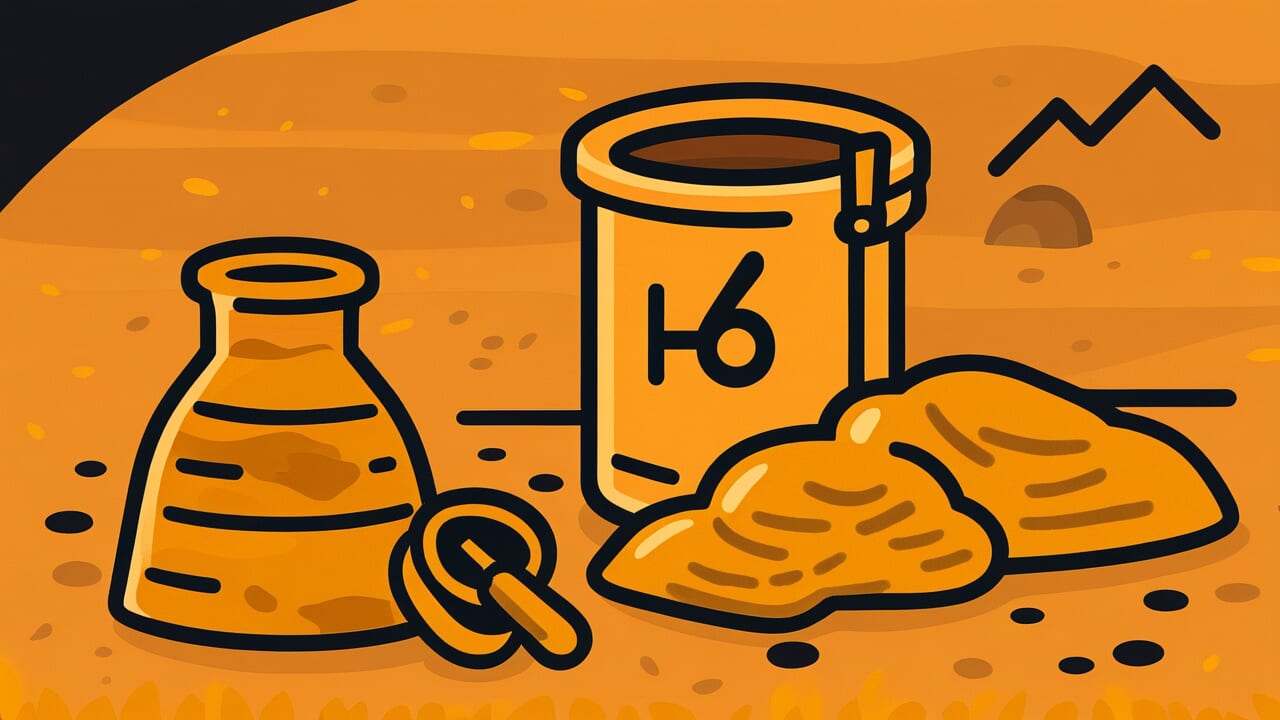How to Read “A measure of soil, a measure of gold”
Tsuchi isshō ni kin isshō
Meaning of “A measure of soil, a measure of gold”
“A measure of soil, a measure of gold” means that even a tiny piece of land has extremely high value.
The proverb uses an extreme comparison. It says that even one shō of soil is as precious as the same volume of gold.
This emphasizes just how valuable land really is.
People use this proverb to explain how scarce and important land is. It appears especially when talking about taking care of limited land.
The saying teaches that we should never look down on even small pieces of land. Today, people also use it to describe high land prices in cities or housing shortages.
This expression works well because it compares land to gold, something everyone recognizes as valuable.
The metaphor “worth the same as gold” hits people’s hearts harder than numbers or logical explanations ever could.
Origin and Etymology
Historical records showing the exact origin of this proverb are limited. However, the structure of the phrase reveals an interesting background.
Let’s focus on the unit “isshō.” One shō is a volume measurement equal to about 1.8 liters.
People traditionally used it to measure rice and sake. The proverb deliberately uses a unit of volume, not area.
This is the key feature of the saying. It means that even a tiny amount of soil that fits in your palm has the same value as the same volume of gold.
This extreme comparison expresses how precious land truly is.
Japan’s geography deeply influenced the birth of this expression. Japan is mountainous with little flat land.
Farmable land has always been limited. In cities and important transportation points, conflicts over land never stopped.
In this context, people came to recognize that even a small piece of land had value equal to gold, or even greater.
By contrasting land with gold, the most valuable thing, the proverb impressively conveys land’s importance. This shows the clever expression skills of our ancestors.
Usage Examples
- A single tsubo of land in the city center truly embodies “a measure of soil, a measure of gold”
- Even this narrow garden has the value of “a measure of soil, a measure of gold,” so I carefully maintain it
Universal Wisdom
The proverb “A measure of soil, a measure of gold” contains a fundamental truth about human existence. It speaks to humanity’s eternal struggle over limited resources.
Land cannot be increased. You can mine or produce gold, but land only exists in the amount that’s on Earth.
This absolute limitation gives land its special value.
Looking back at human history, most wars were fought over land. At the individual level, inheritance disputes over land have repeated throughout time and across cultures.
Why do people cling to land so intensely? Because land is not just material. It is the foundation of survival itself.
Land is where we grow food, build homes, and conduct business. Human activity cannot exist without land.
This proverb has been passed down through generations because humans continue to depend on land as a limited resource, no matter how times change.
Our ancestors made land’s invisible value visible by comparing it to “gold,” something everyone understands.
This wisdom resonates deeply with modern people who must face the reality of finite resources.
When AI Hears This
Shannon, the founder of information theory, proved that “redundancy” is essential for reliable communication.
If you send only essential information, a little noise destroys everything. By adding seemingly wasteful extra information, you can detect and correct errors.
The “soil” in this proverb is exactly this redundancy. If you try to extract only gold, you actually cannot even find the gold.
You can only identify “this is gold” when you have soil as context.
When crushing and sorting gold ore, over 99 percent is discarded soil and rock. But without processing this massive amount of “noise,” you cannot even confirm the existence of the remaining 1 percent of gold.
The same phenomenon occurs in modern machine learning. To teach AI to recognize cats, you need not just cat images but vast data of “non-cats” like dogs and landscapes.
Google research shows that when training data diversity increases tenfold, accuracy improves dramatically. In other words, you cannot learn correct answers from correct data alone.
This expression that soil and gold have equal value accurately captures the essential cost of information processing.
To extract high-value information, you need an equal amount of low-value information. What seems wasteful actually defines value itself.
Lessons for Today
This proverb teaches modern people the importance of having eyes that don’t miss the value of small things right in front of us.
We tend to be captivated by size and scale every day. Big houses, large plots of land, many possessions.
But what truly matters is not quantity but quality, not size but location and how you use it.
A small apartment in the city center can have more value than a large house in the suburbs. Even a narrow balcony can nurture abundant greenery with creativity.
This perspective applies not just to land but to time and opportunities too. Even brief free moments can produce great results depending on how you use them.
A small encounter can become a turning point that changes your life.
What matters is correctly recognizing the value of what you have now. The grass always looks greener on the other side.
But in the “measure of soil” at your feet, possibilities equal to gold might be sleeping.
Having the wisdom to make the most of limited things. That is the warm message this proverb gives to those of us living in modern times.



Comments